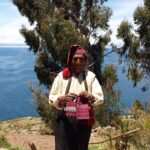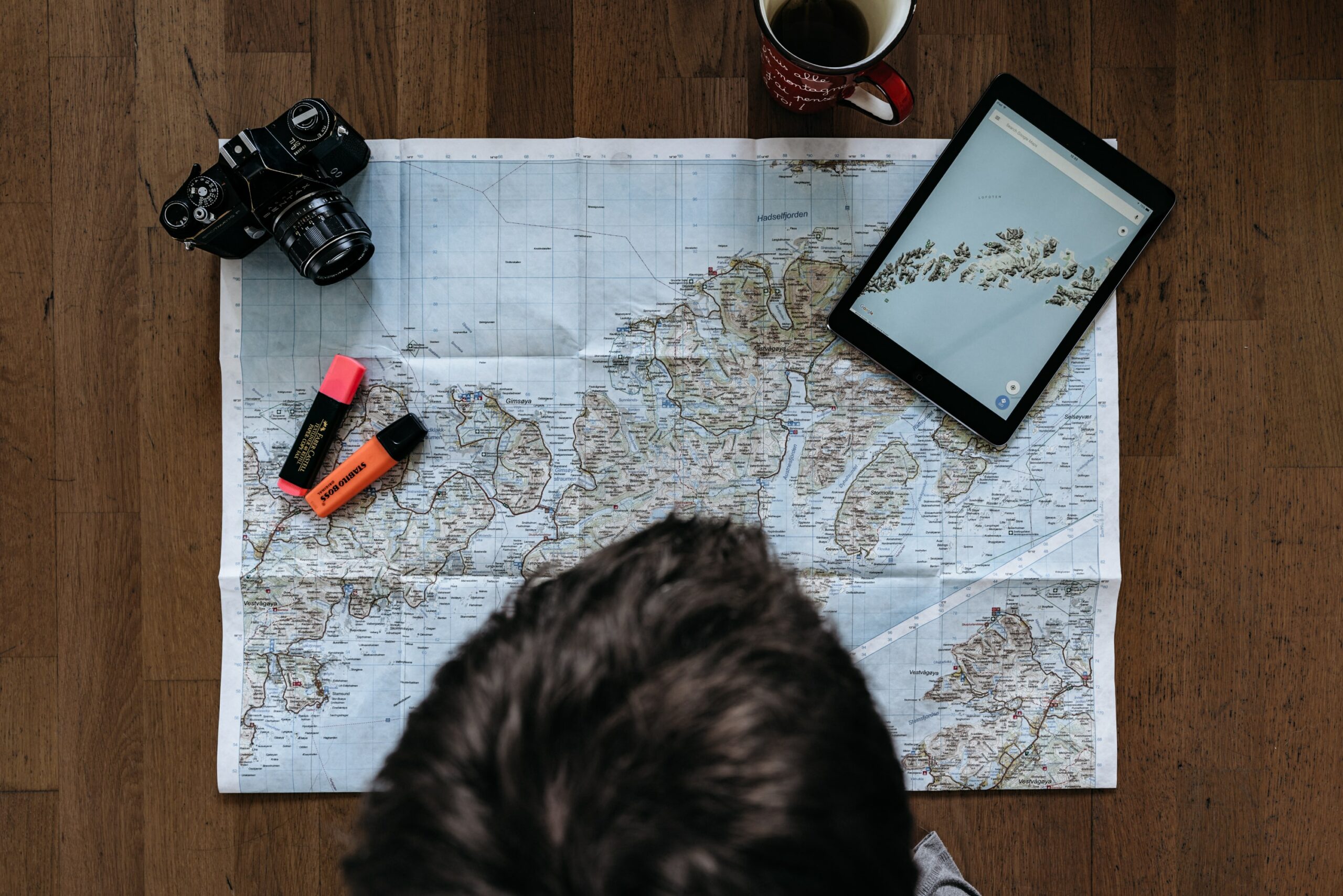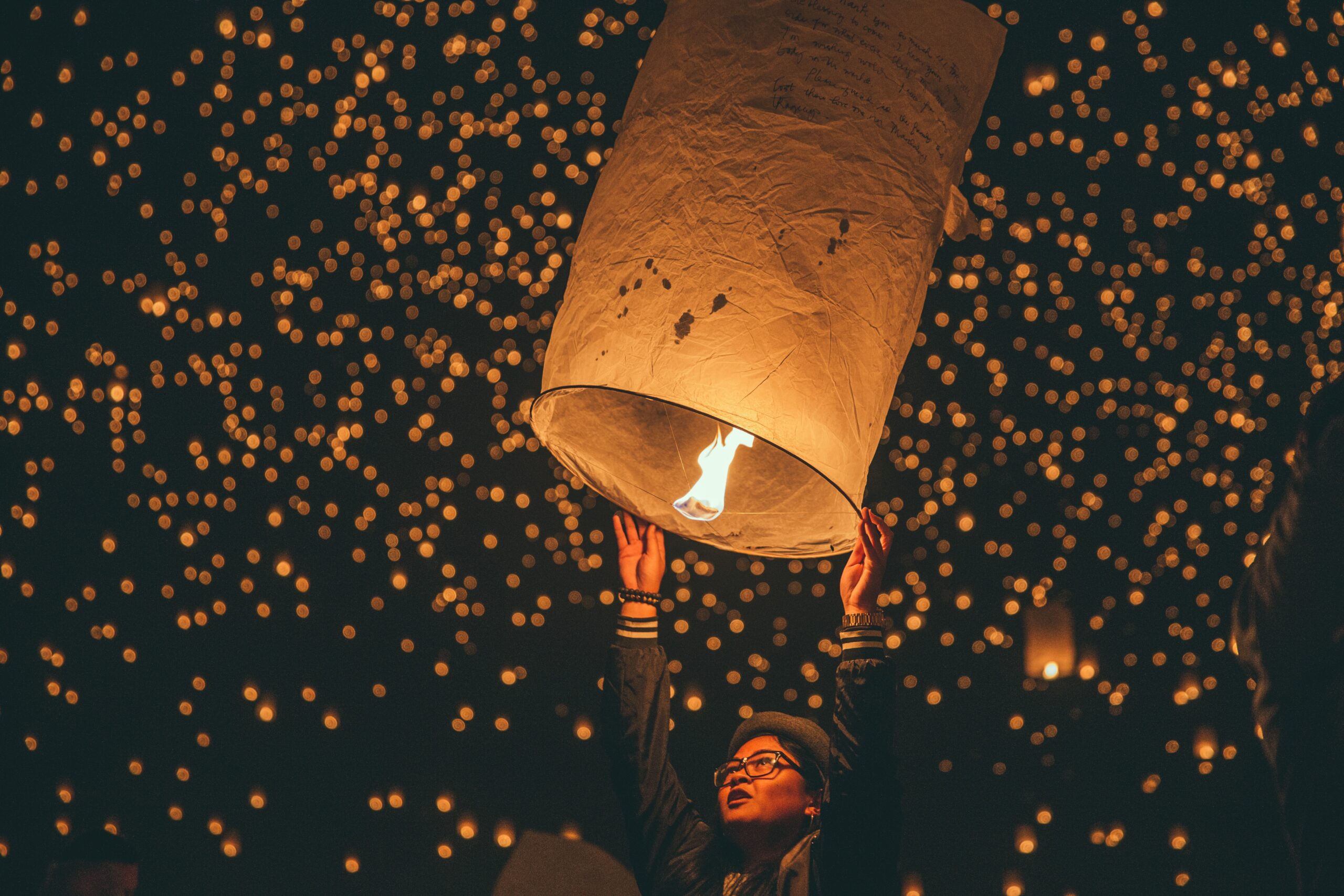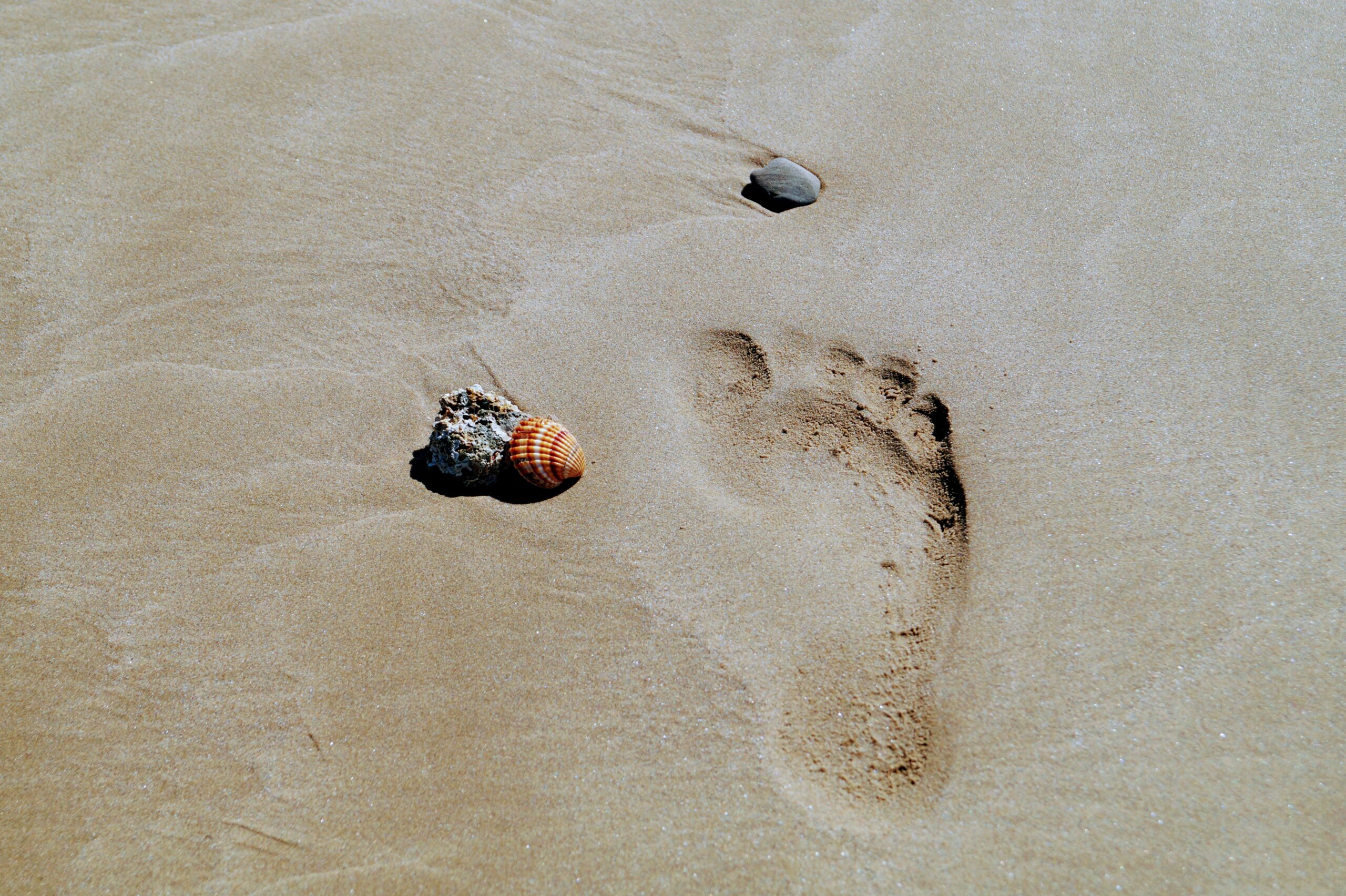It’s easy to consider the word ‘sustainability’ as part of a new wave of being – finding solutions (often with new technology) to problems that humans inadvertently created ourselves. This year’s Earth Day theme, “Restore our Earth” emphasizes that “we can’t go back to ‘business as usual’.” As we look for new ways to bring about environmental change, there are no better guides than indigenous communities.
Peru is a country bursting with vibrant natural and cultural wonder. It is home to the infamous Machu Picchu and nearly 13% of the Amazon rainforest. It is also home to many indigenous communities like the Uros, Amaru and Paru Paru, whose rural roots have both preserved sustainable traditions and opened doors for integrating newer modes of sustainable living into their everyday experience. From recycling the old to embracing the new, here’s what indigenous Peruvians can teach us about preserving Mother Earth:
Harnessing the Power of Potatoes: Sustainability Rooted in Community
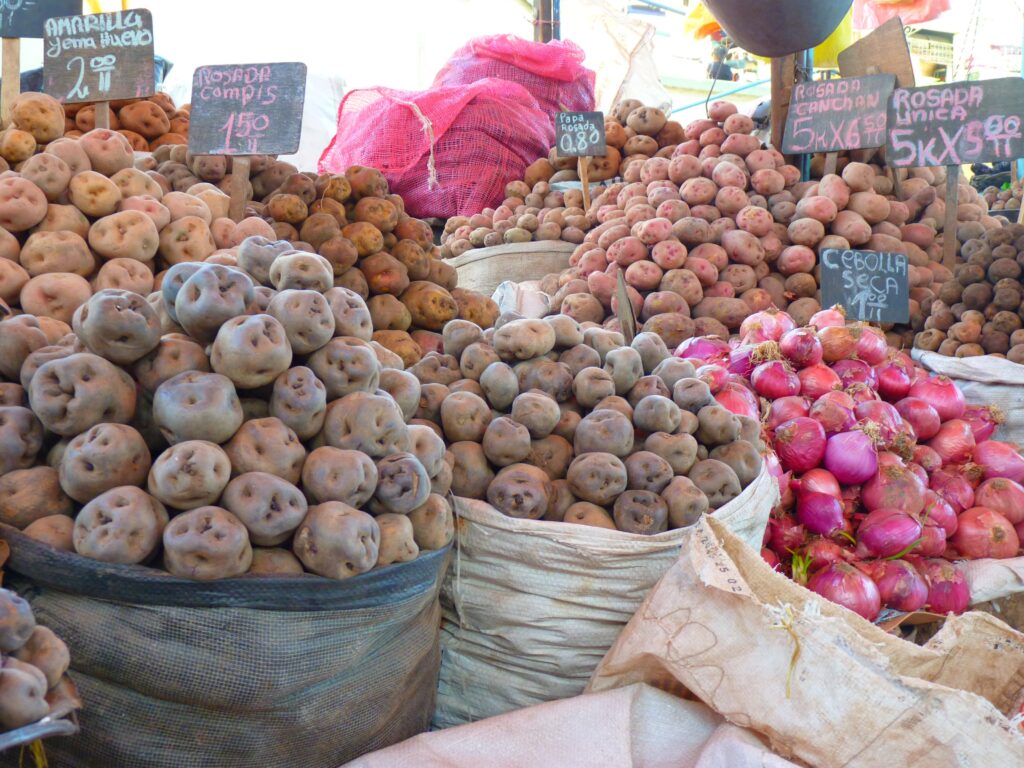
Google anything about the food history of Peru, and you’ll no doubt come across potatoes. With over 4,000 varieties found in the Andean region alone, this crop is an essential part of supporting agricultural biodiversity and food security throughout the country. The Parque de la Papa, is home to six indigenous Quechua communities who work together to accomplish those goals.
As a result of maintaining their ancestral values of reciprocity (known as Ayllu), solidarity and balance (as a community and with nature), this collective has found ways to adjust to a warming climate and maintain the diversity of their crop – often by reading the land (when the indigenous ruca plant blooms open widely, that’s a sign to plant the potato crop earlier in the year to maximize harvest).
As a result, they were able to provide nearly one ton of potatoes to families in need in Cusco City during the COVID-19 crisis. They have also experimented with older varieties of potato that have proved more resilient to climate change, proving that sometimes sustainability means simply returning to your roots.
Harnessing the Power of Necessity: Turning Old Tires into New Footwear
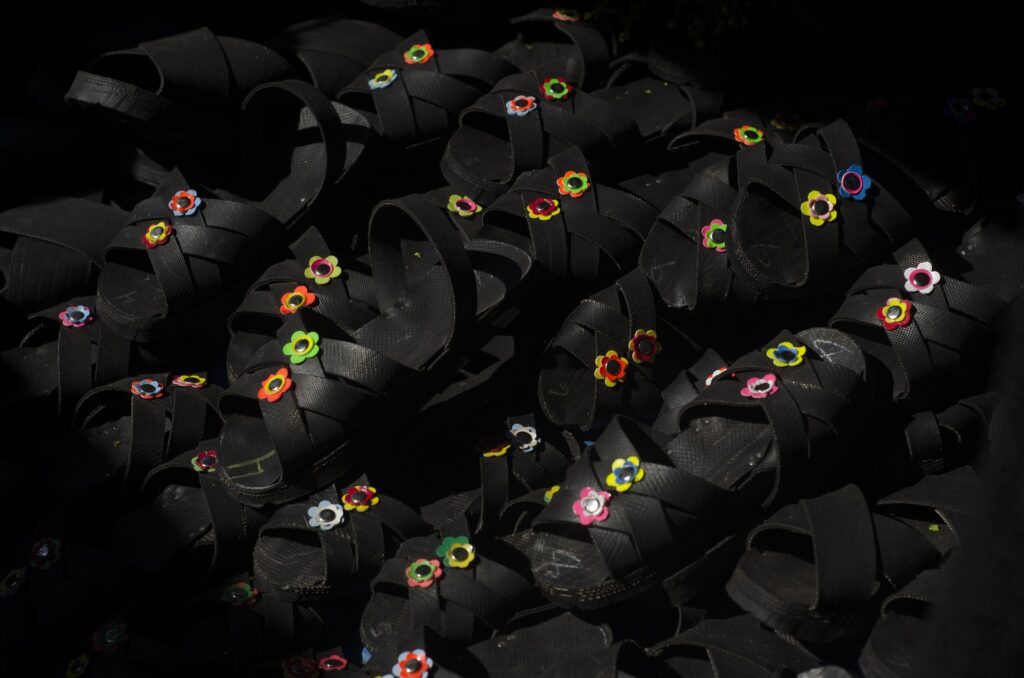
Reduce. Reuse. Recycle. These three words have been part of the sustainability vernacular since the early 80’s. This mantra is reflected among indigenous Andean communities in a surprising way – turning tires into sandals. Known locally as Yanquis, or Ojotas in Quechua, they are made out of discarded tire rubber, and are famous for being the footwear of versatility – worn everywhere from the fields to the mountains. They are popular among farmers and made completely by hand. Once they’ve worn out as shoes, yanquis often find a third life as door hinges for outdoor fencing. The focus on reusing reflects a often cheaper solution with a much lower environmental impact. Though born out of necessity, the durability of the shoe in both form and culture can teach us something about the power of reinventing new ways to protect our earth from what we already have.
Harnessing the Power of the Sun: Merging Tradition with Modernity in Lake Titicaca
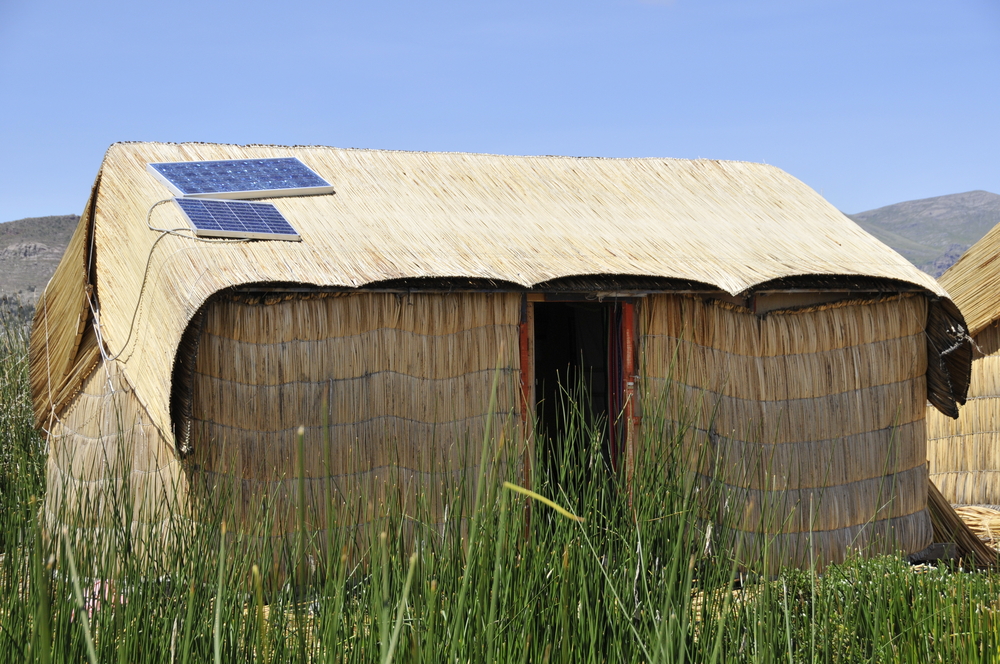
A final lesson to be learned from these communities is in the power of embracing the new and unknown. As with many iconic natural wonders, Lake Titicaca is already vulnerable to climate change. Increased solar radiation has heightened evaporation of the lake, threatening the livelihoods of the indigenous communities that call the surrounding area home. With the support of European company Euro Solar, the islands now have solar panels that provide electricity for the local schools, homes and health centers, improving accessibility to the outside world while preserving the pristine natural surroundings. With the majority of income coming from tourist visits to these islands, in a happily ironic way this integration of modern technology allows the communities to preserve their way of life and support both cultural and environmental sustainability at the same time.
Peru’s indigenous communities offer just a few examples of many that can teach us about protecting our Pachamama (Quechua for “Mother Earth”). As you daydream about your next adventure in a more sustainable world, consider a trip to explore the magic of the Peruvian Andes and experience their unique approach to a more sustainable world. Our Pachamama needs us all to partner for a world that sustains people and places for the future.
About the Author
Native Tours is a sustainable community-based tour operator offering authentic excursions throughout Latin America that foster an appreciation for environmental and cultural conservation. We believe that responsible tourism can improve the lives of travelers as well as the people and places they visit, allowing the local communities to prosper while safeguarding the rich ancestral heritage that makes them so unique and attractive.
